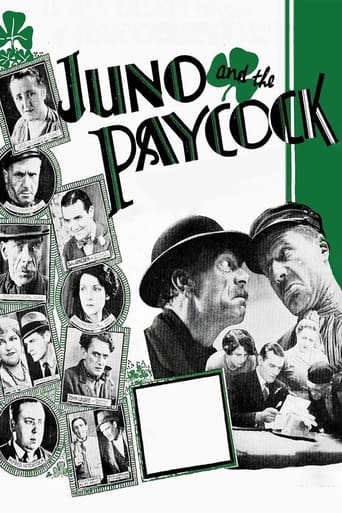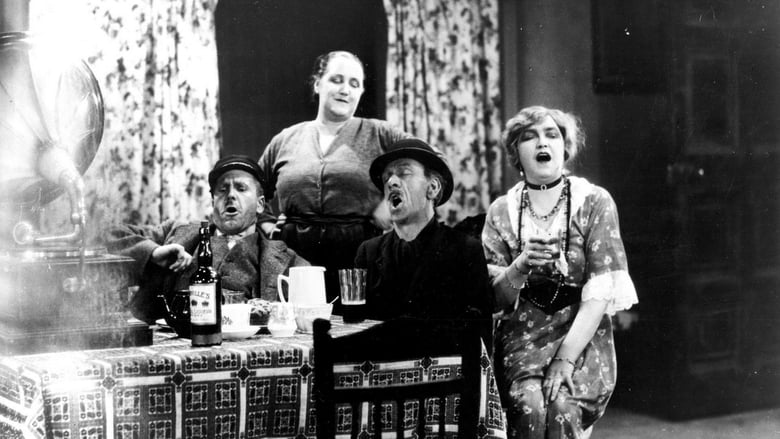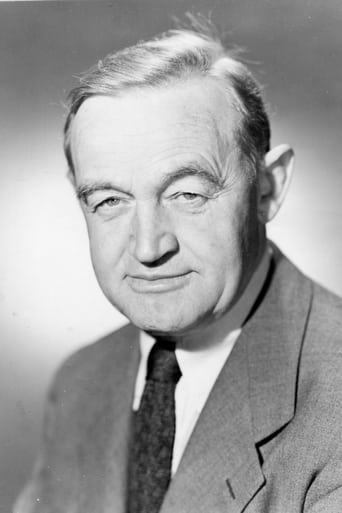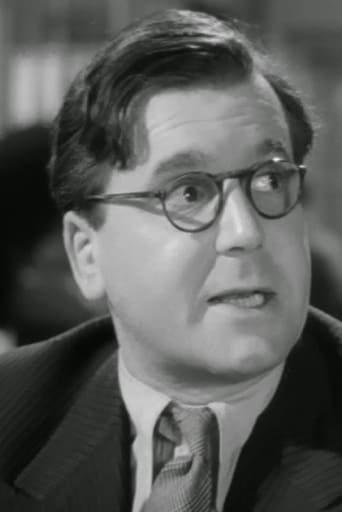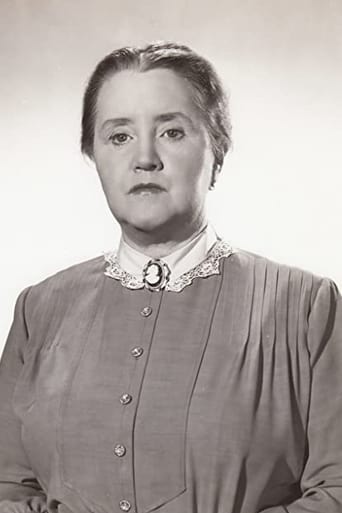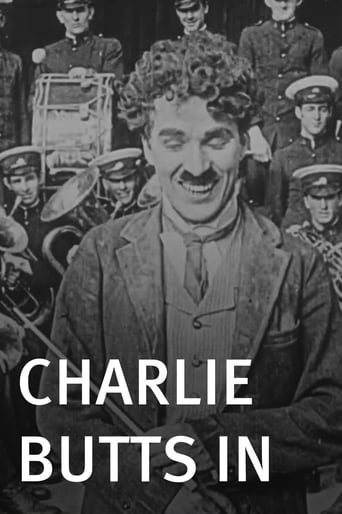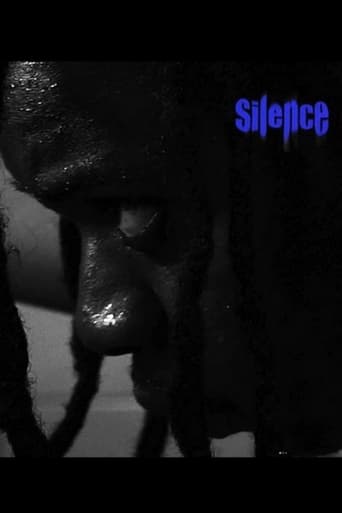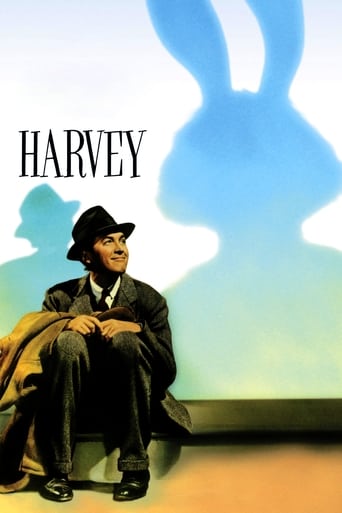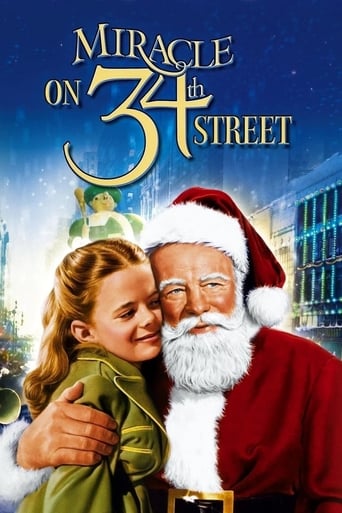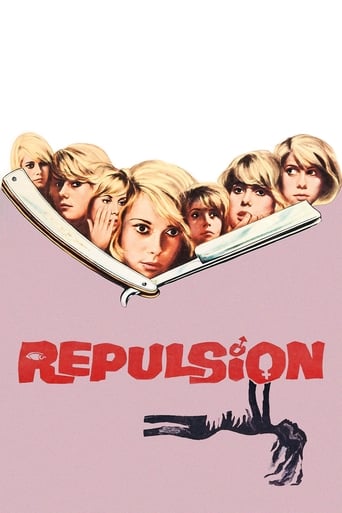Juno and the Paycock (1930)
During the Irish revolution, a family earns a big inheritance. They start leading a rich life, forgetting what the most important values of life really are. At the end, they discover they will not receive that inheritance; the family is destroyed and penniless. They must sell their home and start living like vagabonds.
Watch Trailer
Cast


Similar titles
Reviews
Wonderful Movie
That was an excellent one.
It’s not bad or unwatchable but despite the amplitude of the spectacle, the end result is underwhelming.
It's simply great fun, a winsome film and an occasionally over-the-top luxury fantasy that never flags.
Directed by Alfred Hitchcock, and written by Sean O'Casey with scenario by Hitch's wife Alma Reville, this successful O'Casey play did not translate well to the silver screen. Instead, it's a plodding mess, though it does serve as a rather inauspicious (talkie) film debut for the Irish character actor, and future Oscar winner, Barry Fitzgerald (Going My Way (1944)).Ignoring the fact that this drama's story is nothing like the director's later works, the film is still completely lacking any evidence of his technique or mastery of the camera (unlike many of his other early films). The film does precede and resemble in many ways director John Ford's The Informer (1935), but the plot's main thrust is how a poor Irish family's prospects change when they learn they are to receive a substantial windfall.An orator (Fitzgerald) sets the Dublin scene: hard times have befallen this Irish community, but everyone is urged to buck up and pull together before gunshots ring out and the crowd has to scatter. So these Irish are poor amidst fighting for their freedom from the British who occupy "their" country. Former sea Captain Boyle (Edward Chapman) is now the loafer patriarch of one of these families, but his wife Juno (Sara Allgood, reprising her role from the O'Casey play) "wears the pants", though occasionally (e.g. in front of non- family members) she lets him think he does. The Boyles have a son, Johnny, who walks with a bad hip and is missing an arm from his freedom fighting days.However, the director makes no secret of the fact that it was Johnny who ratted out a compatriot (though apparently not for money, as Victor McLaglen's character does in the aforementioned Ford film). This is discussed in harsh tones by his father, the Captain, and his friend 'Joxer' (Sidney Morgan) in Mrs. Madigan's (Maire O'Neill) pub. The Boyles also have a comely daughter named Mary (Kathleen O'Regan), who's courted by Jerry (Dave Morris) until Charles Bentham (John Longden) whisks her away with news that her father is to receive a 1,500- 2,000 pound inheritance. Upon learning of their fortune, the family and their fast friends sing joyously during an impromptu party in their once shabby home, now outfitted with a Victrola (record player) and new furniture.It seems the party was the highpoint of the Boyles's celebration as things go downhill from there. As it turns out, there is no inheritance (perhaps it was just a ruse by Bentham to bed Mary). Though the Captain learns of this, he's able to keep it a secret until the creditors come calling. Joxer turns on him first, and seems to be the one who's spreading the "rumor" of the absence of an inheritance. The tailor wants his 13 pounds; Madigan, who wants the bar tab paid, takes the Victrola for her 3 pounds owed; the furniture store repossesses their 20+ pounds worth of merchandise.Johnny is killed by those who learned about his snitching; Mary shames her father when he learns from his wife that his daughter is pregnant. Jerry provides Mary a brief bit of hope, proclaiming his love and offering to take her back now that Bentham has disappeared, until he too learns of her "condition". Juno laments the fact of their poverty to the Lord.
This is a very early sound movie; therefore, many of the technical aspects are very primitive, so you must use a bit of patience. But, some of the acting is top-notch, and of course, the play is a classic of the Irish stage. The two standouts as actors is the man who played the outlandish sponge and hanger-on, Jockster, and Sara Algood (sp?) always a dynamite character actor--as Juno, she shines. All in all, this Hitchcock adaption of the play is well done. "Juno and the Paycock" eventually goes in a direction that you would not expect, but in any event, the way in which it looks at Dublin's poor is rather unflinching.
A poor Irish family is notified they will be inheriting a small fortune, but things don't go according to plan. This classic stage play, by Sean O'Casey, makes a weak motion picture. Despite being directed by Alfred Hitchcock, little is done to make it interesting as a film. And, unfortunately, nothing helps you understand context. In fact, the introductory political speech and shooting of Barry Fitzgerald makes it even more confusing; a narrative explaining setting and situation would have been better. The introduction of the family characters falter, also. Central is Sara Allgood (as Juno Boyle). Her unemployed, and hopelessly in debt, husband is Edward Chapman (as Jack). Their children, one-armed John Laurie (as Johnny) and pregnant Kathleen O'Regan (as Mary), are left holding the dramatic potential.*** Juno and the Paycock (6/29/30) Alfred Hitchcock ~ Sara Allgood, Edward Chapman, Kathleen O'Regan, John Laurie
Gee, maybe that's not fair. Maybe it's just that the Irish have a better heritage of articulating hard times. "Juno and The Paycock" is the epitome of tales of woe and suffering from the Irish urban poor during The Troubles of the early 20th century. The family has all the stereotypical travails: Joblessness due to alcoholism, joblessness due to labor union strikes, involvement with the Republican Army, and all these problems fall across the shoulders of the long-suffering mother, Juno.If such a thing can be imagined, it gets worse. The family believes they will fall into some money, so they (foolishly) run up debts. This begins the 'comic' part of the film's tragi-comedy structure. When hopes prove to be false the family is devastated.A relentlessly downbeat story that sees an interlude of clearly false hopes followed by a tragic ending, is considered a chestnut of the Irish playwright Sean O'Casey. For viewers, anyone who can't understand the thick Irish brogues on the equipment used in an early talkie will have no chance to understand the dialogue. Worst of all the nature of the story really doesn't suit the talents of even a young Alfred Hitchcock. Even by that point in his career, he had begun to make compelling suspense pictures and this film is not in his wheelhouse. Even taking exception for budget and circumstances that would have obligated him to take on this film as an early sound project, "Juno and The Paycock" does little to distinguish the work of Sean O'Casey and even less for Hitchcock. It should be avoided, even by Hitchcock completists.

